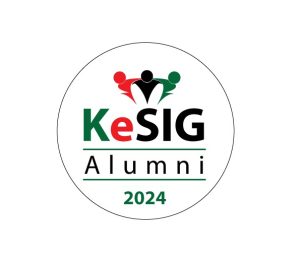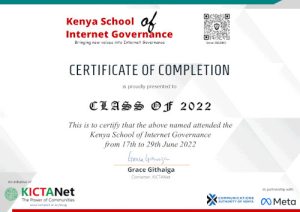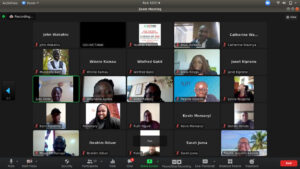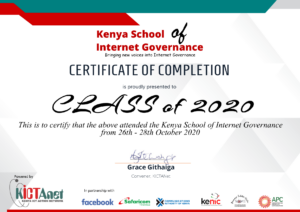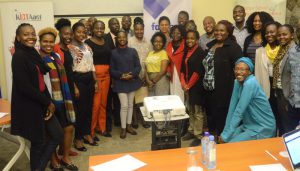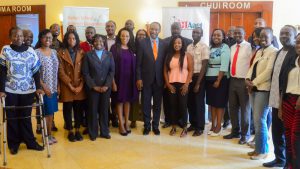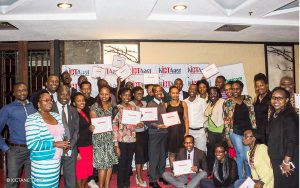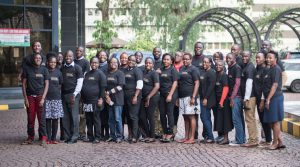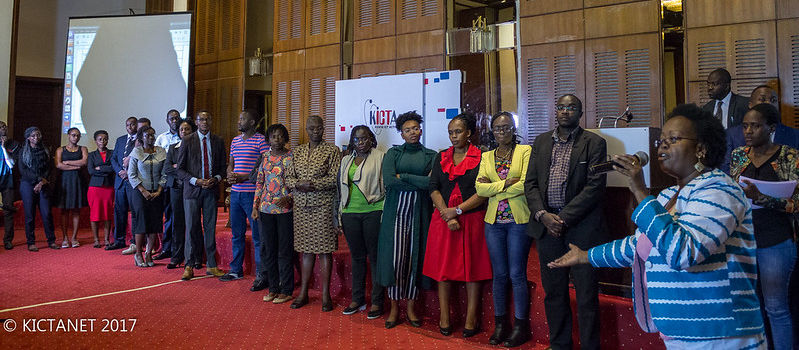
2017 KESIG Fellows
Kenya School of Internet Governance is a course covering technical, economic, legal, and contemporary social issues brought about by the Internet and how they affect Kenyan decision-making. It aims to build a critical mass of individuals advocating for Internet rights and freedoms through equipping the participants with the skills needed to participate meaningfully in local, regional, and global policy discourse.
The selection process of both faculty and students since inception requires that participation is inclusive. The criteria for selection includes affirmative action of persons from marginalized groups such as the Counties, PWDs, state and non-state actors, diverse professionals drawn from various multi-stakeholder groups, female candidates, geographical representation, those from low income, and rural areas. The community is encouraged to share the application form downstream to get as diverse applicants as possible.
It is expected that the fellows will become ambassadors and champions for digital inclusion including internet governance after the training as has been demonstrated by previous cohorts. The Learning journey entails Candidates application; selection process; induction; access to the KeSIG e-learning platform; two weeks of self-paced study with the help of proctors; students online interaction on the e-learning platform discussion forum, and also through Whatsapp; last 3 days of engagement with industry practitioners; online exam on last day; participation at the Kenya IGF on the last day; certificate of completion issued to participants; and blogs published by students. The process also includes identifying trainers and industry speakers and updating the curriculum and e-learning platform.
From 2016 to 2023, KeSIG has trained 421 new voices on internet governance. Below are several cohorts of KeSIG from inception.
FAQ: Kenya School of Internet Governance (KeSIG)
KESIG Fellows
![]()

